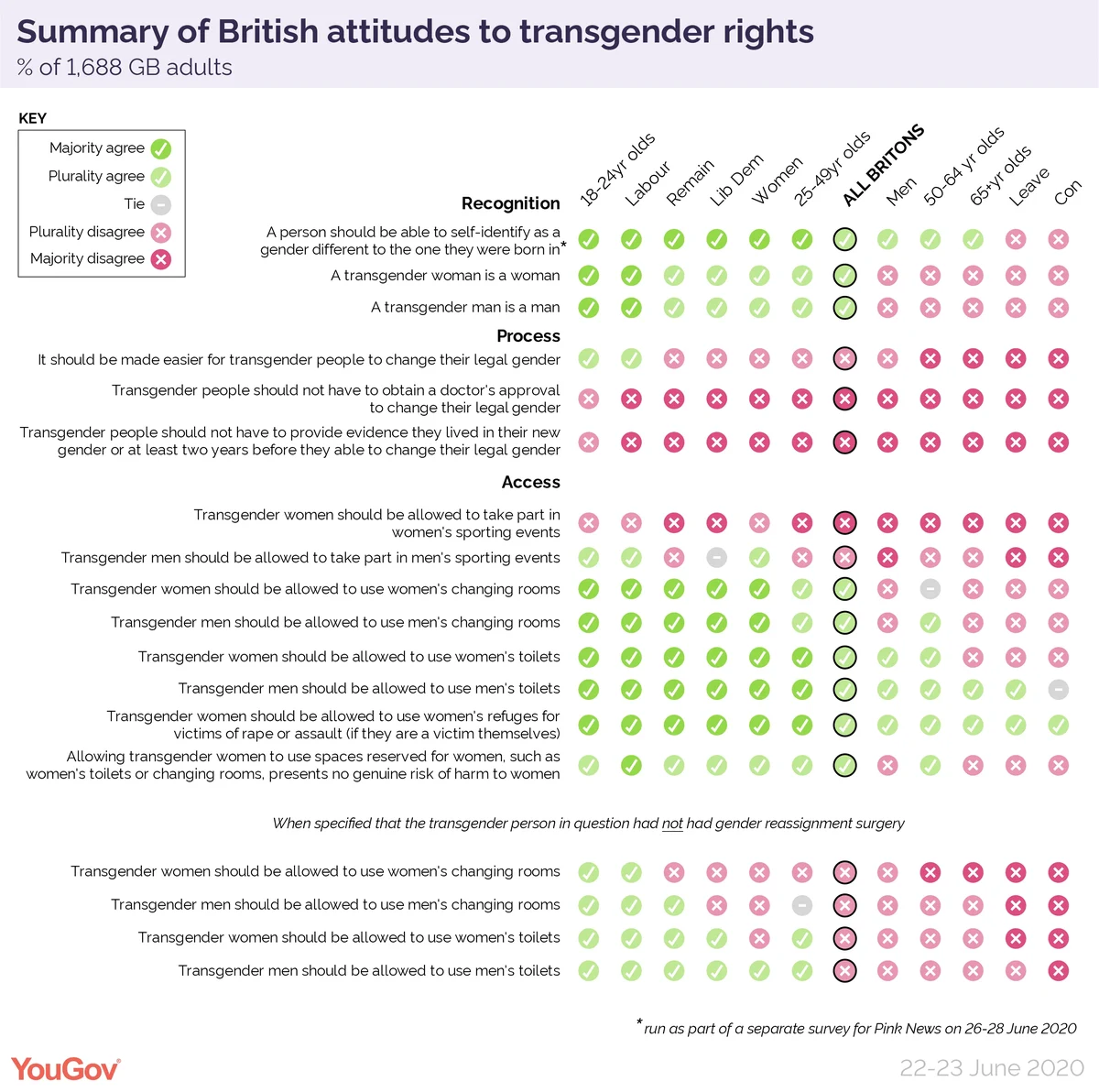Britons support the right of transgender people to use facilities for their chosen gender, but oppose making the legal transition process easier
Last week it was reported that the government was gearing up to make announcements on changes to the rules around how transgender people can self-identity.
A recent YouGov poll for PinkNews showed that by 50% to 27% Britons believe that people should be allowed to self-identify as a gender different to the one they were assigned at birth. While still a commanding lead, this figure is a slight decline since 2019 (56% to 23%).
The results of another YouGov survey, conducted a week earlier as part of our public data programme which looks at public opinion on key social issues over time, take a comprehensive look at where the public stands on transgender rights.
Across the survey two distinct groups of opinion emerged, based on politics, gender and age. Labour, Lib Dem and Remain voters, along with women and younger people, are likelier to hold more trans-friendly views than Conservative and Leave voters, men and older people.
Attitudes differ somewhat by class, although generally to a much lesser extent than these other demographic factors, and more because people in the C2DE socio-economic group are more likely to respond “don’t know” than their ABC1 counterparts rather than actually taking an opposing view.
On the topic of don’t know responses, a sizeable minority of Britons are undecided when it comes to the trans-rights debate. For every question in the survey between 21% and 30% of people answered “don’t know”.
It is worth noting that in almost all instances, attitudes towards transgender women and transgender men are effectively identical. The bulk of the questions on the survey were asked previously in December 2018. In most cases attitudes among the general population today are essentially the same as they were 18 months ago.
There is an exception to both of these comparisons: sports. We detail the ways in which attitudes on this topic differ to the rest in the relevant section below.
Recognition
The PinkNews survey shows that there is substantial support in the country for people’s freedom to identify their gender as they wish.
However, when the separate YouGov survey asked whether or not Britons themselves consider a transgender person to be the new gender identity they have adopted, the public are much more split. Four in ten Britons (40-41%) believe they are, compared to 36% who disagree.
These results are not necessarily contradictory. They suggest that while Britons support the freedom for a person to choose their own gender, some do so while not personally agreeing with those new labels.
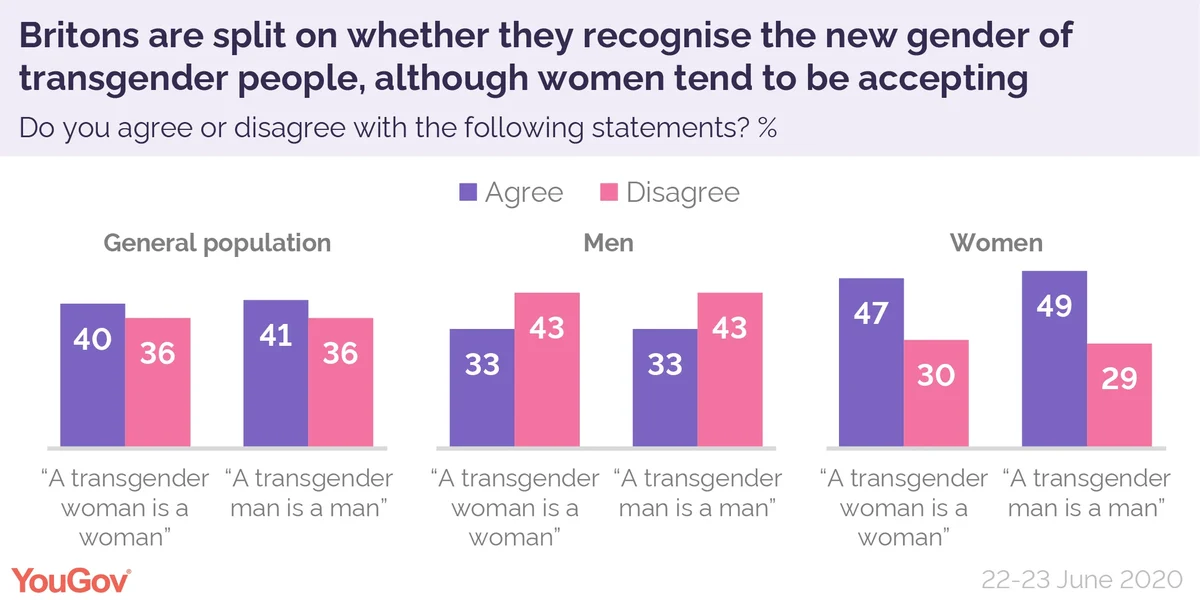
Young Britons – those aged 18-24 – are most likely to accept the new gender identity of transgender men and women, at 54%. So too do a majority of Labour voters (53%). Least likely to recognise that transgender people now hold a new gender status are Leave voters (32%), men (33%) and Conservative voters (34%).
Men and women hold opposing views on the issue. Almost half (47-49%) of women accept the new gender identity of transgender men and women, while about three in ten (29-30%) do not.
By contrast, men refuse to accept the new gender identities of transgender men and women by 43% to 33%.
Britons oppose simplifying the legal process of changing genders
Following a brief explanation of what the current requirements are for someone to legally change their gender (exact wording can be seen in the chart below), by 47% to 28% Britons tended to think that this process should not be made easier. While they are pro-transgender rights on most of the other topics, on this subject Lib Dem and Remain voters, women and 25-49 year olds tend to oppose making the legal process easier.
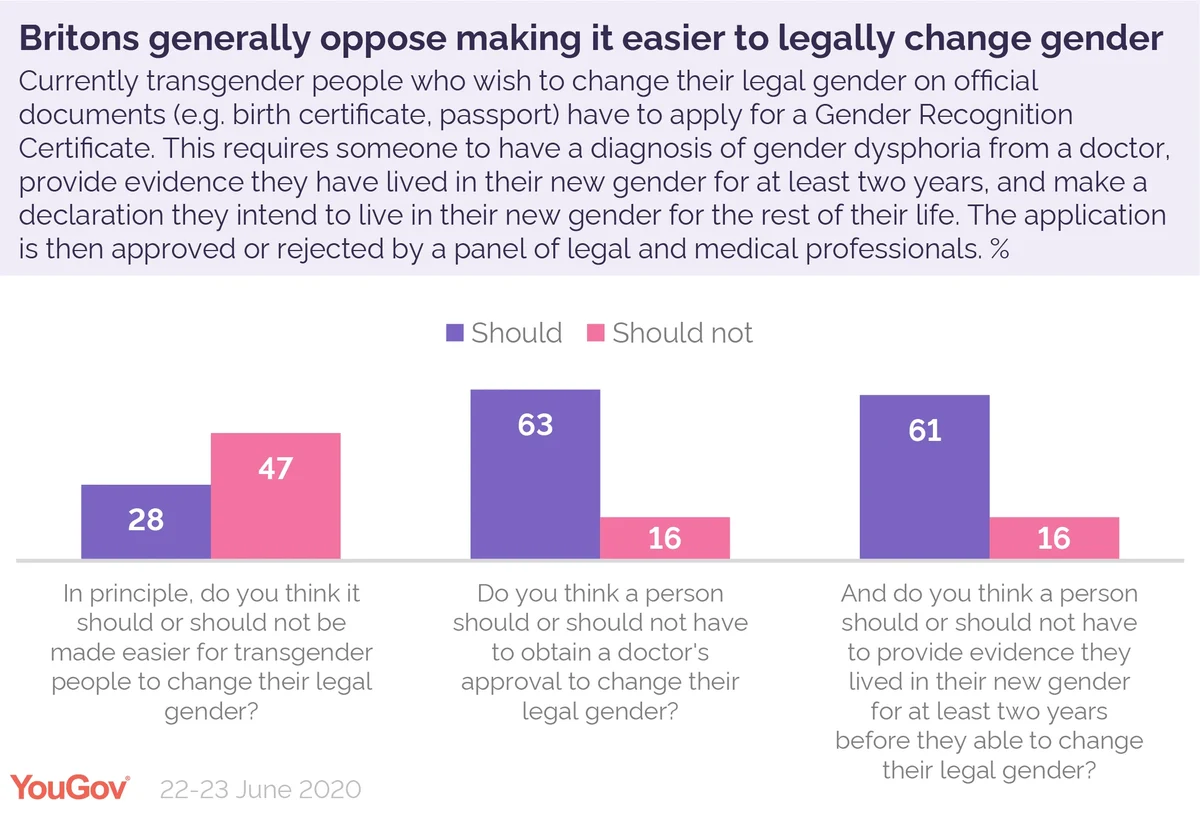
The forthcoming government announcements will reportedly prevent transgender people self-identifying as a different gender without a doctor’s sign-off. This seems in line with the public view, with 63% thinking a doctor’s approval should be required compared to 16% who think it is unnecessary.
The public similarly believe (by 61% to 16%) that a transgender person should have to provide evidence that they have been living as their new gender for two years before being legally entitled to change gender.
On both of these requirements people across all social groups were more likely to support than oppose them.
People tend to be fine with transgender people using facilities for their new gender, but not if they have not undergone gender reassignment surgery
Despite being such a prominent battleground in the trans-rights debate, Britons tend to support transgender people using their new gender’s toilet (46-49% vs 28-30% opposed) and changing rooms (42-45% vs 32-34% opposed).
Women tend to reject the argument that allowing transgender women to use female facilities puts them at risk. By 46% to 28% women say that doing so does not present any genuine risk of harm. Men are more sceptical, thinking such a move puts women in danger by 31% to 37%. Among the overall population 39% believe there to be no genuine risk compared to 32% who disagree.
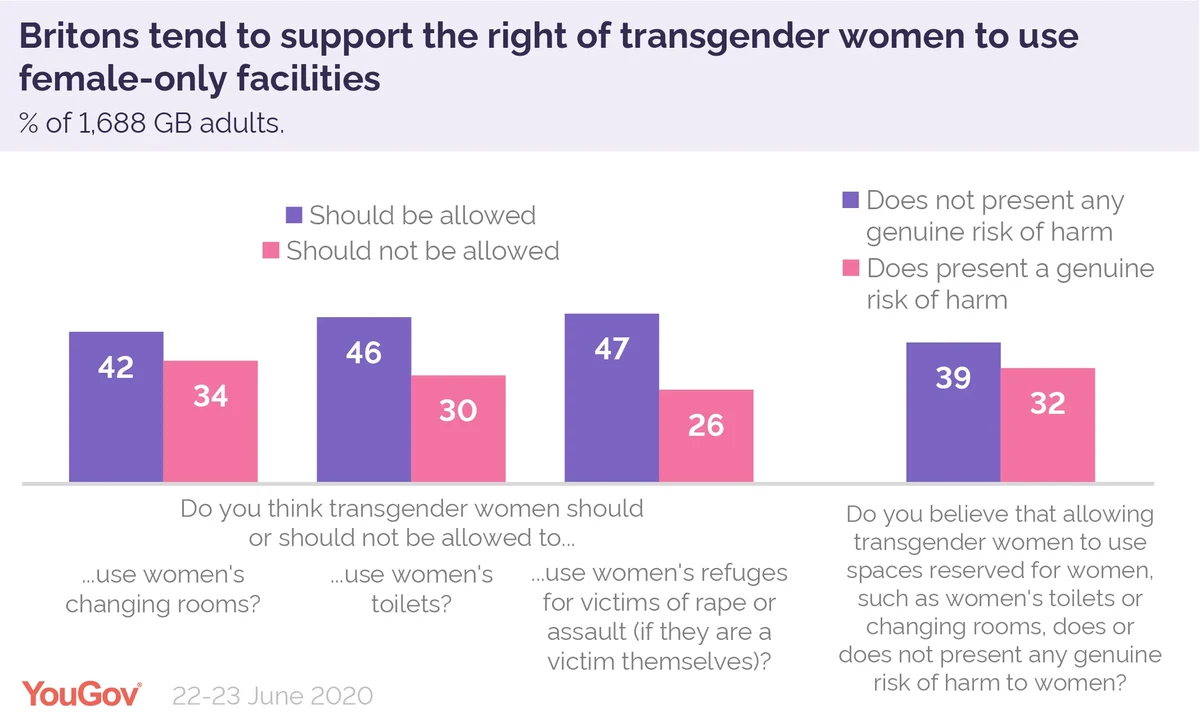
It is worth noting, however, that Britons do not support such access for those who have not yet undergone gender reassignment surgery. By 41-46% to 26-30% people oppose those who have not physically transitioned being able to use their new gender’s changing rooms. Likewise, 39-41% oppose them being able to use their new gender’s toilets, compared to 31-32% who are in support.
People also tend to believe transgender women who have been victims of assault or rape should have access to women’s refuges (47% vs 26%). Please note, this question was not asked about transgender women who have had not undergone gender reassignment surgery.
…but don’t think transgender women should be able to participate in gendered sporting events
When it comes to sports, however, Britons are much less supportive of access for trans people. People tend to think that transgender people should not be able to participate in sporting events for their new gender, but noticeably more so when it comes to transgender women (55%) than transgender men (44%).
This is the case across society, with the various demographic groups being anywhere between nine and 20 percentage points less likely to support inclusivity for transgender women in sports than transgender men.
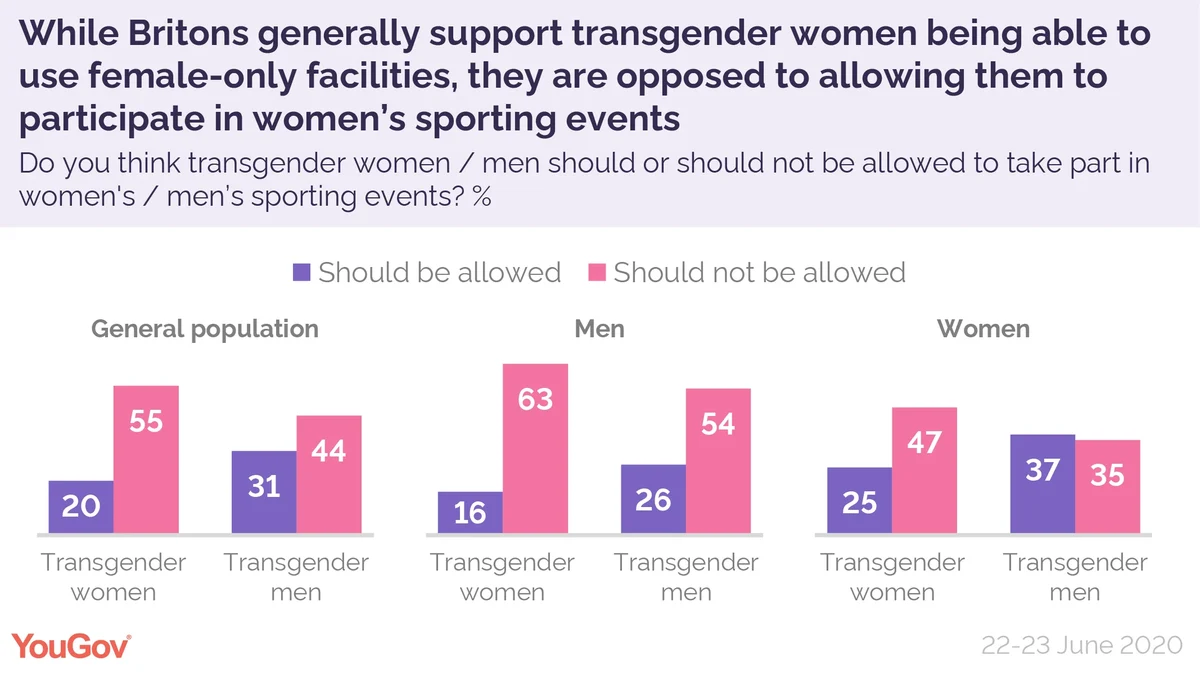
As mentioned previously, sports is the only area where attitudes have noticeably changed since the 2018 study. The proportion of people opposed to transgender women taking part in women’s sports rising by seven points, as well as a five-point increase when it comes to transgender men.
Every single social group is now as or less likely than they were in late 2018 to back transgender access to gendered sporting contests. This is especially the case when it comes to transgender women.


